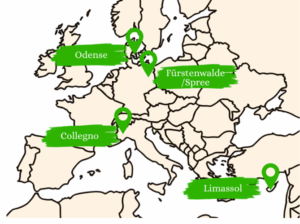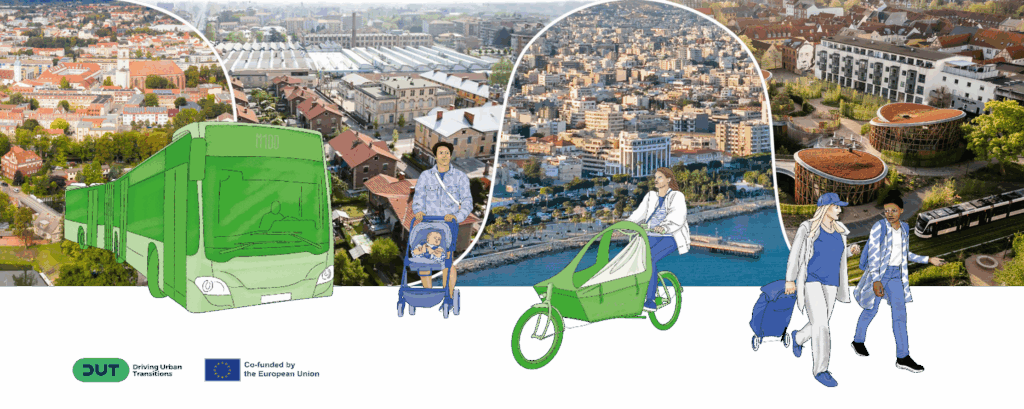

Diffusing sustainable mobility options and reducing car dependency in urban areas
PolicyMix4Mobility aims to create an inter- and transdisciplinary understanding of policy mixes and their effects based on policy packages that promote sustainable mobility practices and reduce car use in urban areas. This work is informed by a novel conceptual framework, bridging qualitative (case studies), quantitative (modelling) and transdisciplinary (urban labs, forum) methodological approaches to assess existing policy mixes and develop prospective ones.

The project involves four European cities of different sizes and diverse socio-spatial conditions and policy contexts, located in Cyprus, Denmark, Germany, and Italy. While they differ in terms of progress towards sustainable mobility, but they share the common ambition to reduce car dependency and promote climate-neutral, socially just urban mobility systems.
The project will first develop a conceptual basis for a better understanding of policy mixes aimed at reducing car dependency as well as a monitoring and evaluation framework for assessing the direct and indirect effects of such policy mixes. These will inform the empirical analyses performed through case studies in the four cities and the organization of urban labs. The case studies will enable the collection, analysis, and assessment of qualitative and quantitative data about policy mixes to reduce car dependency and their effects on mobility transitions.
To improve the understanding of the effects of mobility and transport policy measures with a strategic approach, the project will also apply the MOMOS assessment tool. The Urban labs will develop in each city tools and methods for institutional, procedural, and social innovations, and actions plans for policy mixes to encourage their development and implementation.
A key outcome of the project will be the Mobility Policy Mix Toolbox – a strategic resource designed to support cities and policymakers in navigating the complex politics of mobility transitions.
The Consortium is led by IOEW (Germany), including TRT and 6 other partners from Cyprus, Denmark, Germany, Italy.
TRT contributes to the project as it comes to:
- the design, development and application of the monitoring and evaluation framework,
- the application of the MOMOS model in the four cities,
- the support for the case study in Collegno (Italy).

Introduction to the project by the coordinator Dr. Florian Kern (Institute for Ecological Economic Research – IÖW)
